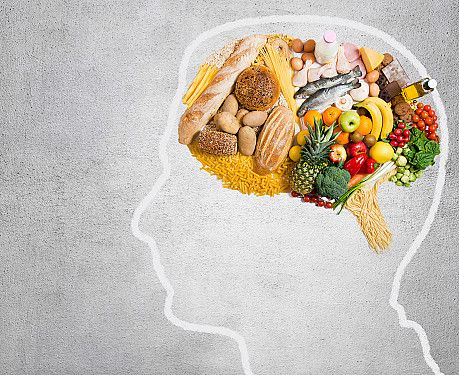In today’s fast-paced world, mental health is becoming an increasingly important topic of discussion. With the rise of stress, anxiety, and depression, it’s crucial to understand the connection between nutrition and mental well-being. Research has shown that what we eat can have a significant impact on our mental health, influencing our mood, cognitive function, and overall emotional well-being.
The Gut-Brain Connection
One of the key ways that nutrition affects mental health is through the gut-brain connection. The gut is often referred to as the “second brain” because of its role in regulating mood and emotions. The gut is home to trillions of bacteria that play a crucial role in producing neurotransmitters like serotonin and dopamine, which are essential for regulating mood and reducing feelings of anxiety and depression.
When we have an unhealthy diet that is high in processed foods, sugar, and unhealthy fats, it can negatively impact the balance of bacteria in our gut, leading to inflammation and poor mental health. On the other hand, a diet rich in whole foods, fruits, vegetables, and lean proteins can promote a healthy gut microbiome and improve mental well-being.
The Role of Nutrients in Mental Health
Certain nutrients play a vital role in supporting mental health and cognitive function. For example, omega-3 fatty acids found in fatty fish like salmon and walnuts are essential for brain health and have been shown to reduce symptoms of depression and anxiety. B vitamins, particularly folate and B12, are important for neurotransmitter production and can help improve mood and energy levels.
Antioxidants like vitamin C and E protect the brain from oxidative stress and inflammation, both of which are linked to mental health disorders. Minerals like zinc and magnesium are also important for brain function and have been shown to have a positive impact on mood and anxiety levels.
The Impact of Sugar and Processed Foods
Sugar and processed foods have been linked to a range of mental health issues, including depression, anxiety, and cognitive decline. These foods are high in refined sugars, unhealthy fats, and additives that can disrupt the balance of neurotransmitters in the brain and contribute to mood swings and fatigue.
A diet high in sugar and processed foods has also been shown to increase inflammation in the body, which can impact mental health by affecting brain function and mood regulation. By reducing consumption of these foods and focusing on a diet rich in whole foods, individuals can improve their mental well-being and overall quality of life.
Practical Tips for Supporting Mental Health Through Nutrition
Here are some practical tips for improving mental health through nutrition:
Include a variety of fruits and vegetables in your diet to ensure you are getting essential vitamins and minerals.
Choose whole grains like brown rice, quinoa, and oats over refined grains like white bread and pasta.
Incorporate fatty fish like salmon, mackerel, and sardines into your diet for a good source of omega-3 fatty acids.
Limit processed foods, sugary drinks, and artificial sweeteners that can negatively impact mental health.
Stay hydrated by drinking plenty of water throughout the day to support brain function and mood regulation.
Conclusion
Overall, the impact of nutrition on mental health cannot be understated. A diet rich in whole foods, nutrients, and antioxidants can support brain function, mood regulation, and emotional well-being. By making conscious choices about the foods we eat and prioritizing our mental health, we can improve our quality of life and overall happiness.
